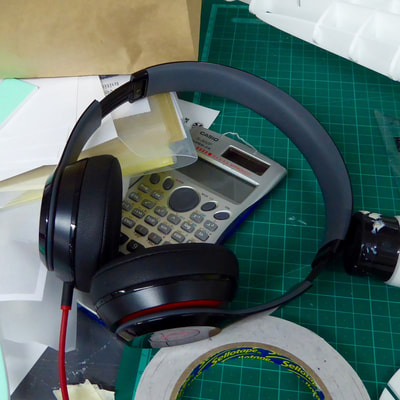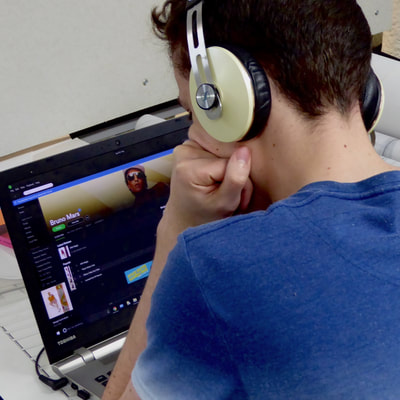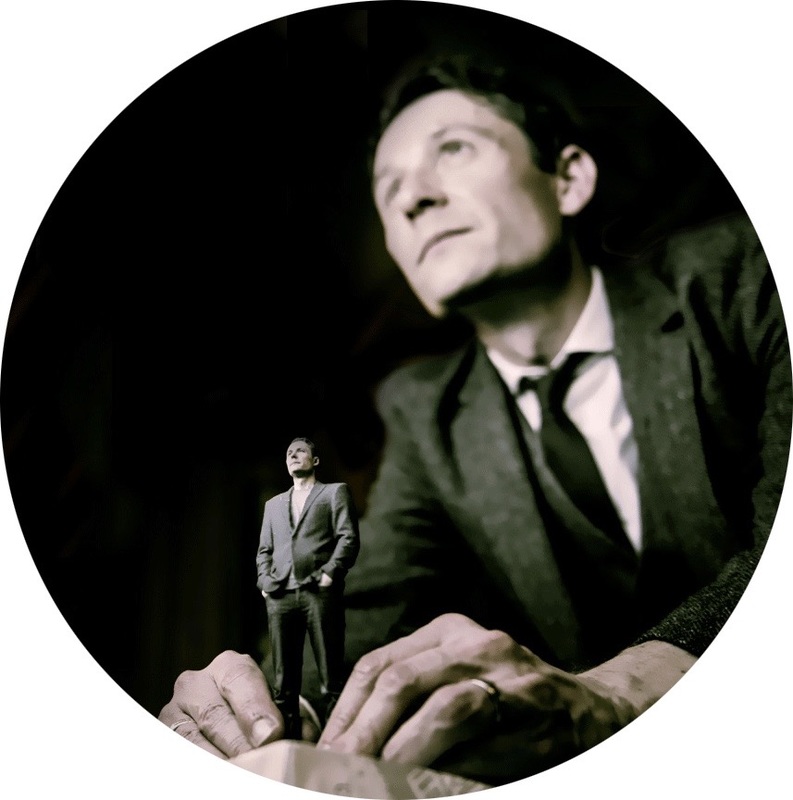In between my record player and CD rack sits a small stack of research methods books offering advice on data collection, analytical frameworks, ethical considerations and beyond. Over the past few months I have spent a fair bit of time looking through these texts in the hope of discovering a methodological approach to suit my research interests and to match the range of material produced through my ethnographic study of meaning-making in American History and Architectural Design. How, for instance, to deal with the presence of music in my photos, field recordings and conversations with students and tutors?
During my observation of the Architectural Design course last autumn I became aware that at some point each day every student would put on a set of headphones, thereby replacing the varied and often chaotic aural ambience of the design studio with a more personal, controlled and musical soundtrack. Interested in what the students were listening to and why, I asked them to help me compile a playlist. Using a submission form on my website, students told me how the likes of Slick Rick helped them through a long day in the studio.
At that time I didn’t anticipate that the playlist exercise would be anything other than a brief mention in my thesis, however I'm beginning to think this type of approach has more to offer than I originally thought. Unable to find a tidy neat-and-tidy solution for dealing with my data, I have been looking at alternative ways of approaching method, starting with John Law's argument that research should embrace and interrogate mess and complexity, in place of a desire to impose clarity and order on a world that is unpredictable and avoids straightforward categorisation. Law rejects the conventional wisdom of a ‘healthy research style’ (2004, p 9) that depends on clarity and complementarity, instead recognising the existence of multiple realities and the researcher's role in co-constructing or performing these realities. From there I looked at Fox and Alldred’s ideas around new materialist social inquiry (2014) where (like Law before them) they use Deleuze & Guattari's (1998) concept of assemblage (or ‘agencement’) alongside Braidotti's (2013) work in posthumanism in order to propose a methodological framework which attends to the de-privileging of human agency and which looks to the way that the world is produced through assemblage of the animate and inanimate (2015, p 399).
These ideas of messy research and sociomaterial inquiry led me in turn to recent work by Mike Michael (2016) and Jen Ross (2017) which makes the case for speculative methods in social research. Both Michael and Ross confront the tendency within social inquiry towards a ‘what works’ approach which neglects the messiness and peculiarities of real life in favour of scale, generalisability and reproducibility. In contrast, speculative method encourages imagination, experimentation and risk in order to address the specific questions posed by networked society. Ross in particular argues that we need to make room for creative and participatory approaches in order to interrogate our complex and open-ended world. Therefore with a new perspective on what can represent research material, I have just put together a playlist for the American History course to sit alongside the earlier compilation from Architectural Design. The playlist draws together pieces of music that featured in the digital postcards of learning space that students produced for me, as well as songs and groups mentioned during interview and conversation and listed within Spotify and YouTube playlists that some of the group shared with me.
If these playlists represent an imaginative and participatory way of producing research material, music already features in ethnographic research in a range of ways, from Sterne’s discussion of the mp3 as a cultural artifact (2006), to Bull’s work around the iPod and mobile listening culture (2005), and then to Makagon and Neumann’s conversation around writing and recording culture (2009), and beyond. More generally there is the field of ethnomusicology which studies music from the social and cultural perspective of those who produce it, while my specific interest in the playlist as an ethnographic artefact is shared by Jacob Nerenberg in the Ethnography Lab at the University of Toronto, even if I have been unable to find out much about his work as yet. All the same, in the spirit of a music artist acknowledging their roots, the following questions that I am now asking through my research owe a debt to speculative research.
So then, Speculative Research feat. Slick Rick. References:
See also: The Sonic Spaces of Online students Anti-noise: a playlist for PhD research
0 Comments
Leave a Reply. |
Search categories
All
I am a Lecturer in Digital Education (Education Futures), within the Centre for Research in Digital Education at The University of Edinburgh.
@james858499 [email protected] |



